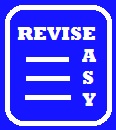Children & Young People's Workforce L2
SHC 22 Personal Development
Personal development is about you gaining knowledge and developing the skills that will enable you to work well in your work placement. Understanding your responsibilities and following the rules is important if you are to make a career in the early year sector.
- Find out what your duties are in your work place. Read the job description to identify your responsibilities.
- Find out what the rules are in your work place with regards to punctuality, attendance, behaviour and so forth.
- Find out what knowledge is expected from you with regards to policies and procedures on health and safety, equality and diversity, safeguarding, and so forth.
- Find out what the Early Years Foundation stage Framework is about and how to apply them in your work setting.
- Find out what Every Child Matters initiative is about and how to apply them in your work setting.
- Find out your strength and weaknesses and explores ways of building your strengths and improving weaker areas.
- Explore your own attitudes and adopt a positive attitude that shows respect for other people's opinions.
| Standards | What should you do and why | Give examples from your own setting |
|---|---|---|
| Punctuality | Arrive on time. Children and staff depend on you. | What do you do if you are going to be late? |
| Punctuality | Arrive on time. Children and staff depend on you. | What do you do if you are going to be late? |
| Attendance / sickness policy | Always inform the manager if you are going to be absent and give reason. The manger will need to arrange a replacement whilst you are away. | What are the rules if you are unable to attend work? |
| Dress code | In some work settings, staffs wear uniforms. High heels and jewellery are not allowed for safety reasons. | What are the behavioural rules in your setting? |
| Behavioural conduct policy | Bad language not allowed. Being courteous at all times to colleagues, parents and children. You are a role model for the children. Smoking not permitted. | What are the behavioural rules in your setting? |
| Practise equality, inclusivity and diversity | Treat everyone equally; ensure that all children regardless of their back ground have the opportunity to participate in activities and events. | How do you practise equality, inclusivity and diversity policy in your setting |
| Confidentiality policy | Sharing information about a child only with manager or key worker.Gossiping amongst staff and parents not allowed. | Who can you share information with in you setting in respect of children needs or issues? |
| Health and Safety policy | Carry out risk assessments of the premises, equipment and toys to ensure health and safety at all times | What do you do in your setting to ensure the place is safe and free form accidents in your setting? |
| Safeguarding policy | Be able to identify signs and symptoms of various forms of abuse. Apply disclosure policy for alleged abuse. Know how to make referrals if abuse suspected | What would you do if you suspected a child was being abused? What is the policy and procedure in your setting of alleged abuse? |
| Early Years Foundation stage framework - EYFS Every Child Matters initiative - ECM | Have knowledge about the EYFS guidelines to promote learning and development. Have knowledge about ECM Apply ECM in the work setting to promote a healthy and a safe environment. | How do you apply the ECM and EYFS in your work setting? |
Ways to continue developing your knowledge and skills at work:
- Attend team meetings
- Talk to supervisors and managers
- 6 month / annual appraisals
- Attending internal training courses
- Attend courses out of working hours to achieve qualifications
- Information days for studying to broaden your knowledge base and develop your skills
- Keeping a reflective log
Best Practice in the work place:
- Listen to other people's point of view
- Show respect to other people's opinions
- Try to be empathetic
- Keep an open mind
- Do not be confrontational
- Have a positive attitude
Quiz on Communication
Click here for SHC 22 in pdf format
REFERENCES
DFE (2014) Development Matters in the Early Years Foundation Stage (EYFS)
DFE (2014). Statutory framework for the early years foundation stage
DEF(2014). Early years (under 5s) foundation stage framework (EYFS)
DFE (2014) Keeping children safe in Out of hours provisions
DFE(2014) Early Years Outcomes
Parents - guide to EYFS (2014)
What to expect and when (2014)
The British Association for Early Childhood Education
(Supported by DFE)
Every Child Matters 2003)
Effective Pre-school and Primary Education 3-11 Project (2003-2008)
DFE (2008) Effective Pre-School and Primary Education 3-11 Project (EPPE 3-11)
Parliament (2003) Every Child Matters
Tassoni et al (2010) Level 3 Diploma Children and Young People's
Workforce (Early Learning and Childcare). Pearson: Harlow Essex
Caroline Meggit et al (2011) CACHE Level 3 Children and Young People's
Workforce Diploma: Early Learning and Child Care.
Hodder Education: London
www.gov.uk/government/
publications/
2010-to-2015-government-policy-childcare-and-early-education
www.education.gov.uk/publications
www.foundationyears.org.uk.
www.legislation.gov.uk/
www.4children.org.uk
DFE (2014). Statutory framework for the early years foundation stage
http://www.foundationyears.org.uk/
eyfs-statutory-framework/
DFE (2014) Keeping children safe in Out of hours provisions
http://www.foundationyears.org.uk/
eyfs-statutory-framework/
DFE(2014) Early Years Outcomes
http://www.foundationyears.org.uk/
eyfs-statutory-framework/
Parents guide to EYFS (2014)
http://www.foundationyears.org.uk/
eyfs-statutory-framework/
What to expect and when (2014)
http://www.foundationyears.org.uk/
eyfs-statutory-framework/
The British Association for Early Childhood Education
http://www.early-education.org.uk
(Supported by DFE)
Every Child Matters 2003)
http://www.education.gov.uk/
consultations/...
/EveryChildMatters.pdf
Effective Pre-school and Primary Education 3-11 Project (2003-2008)
https://www.education.gov.uk
DFE (2008) Effective Pre-School and Primary Education 3-11 Project (EPPE 3-11)
http://www.gov.uk
Parliament(2003) Every Child Matters
https://www.education.gov.uk/
consultations/
.../EveryChildMatters.pdf
